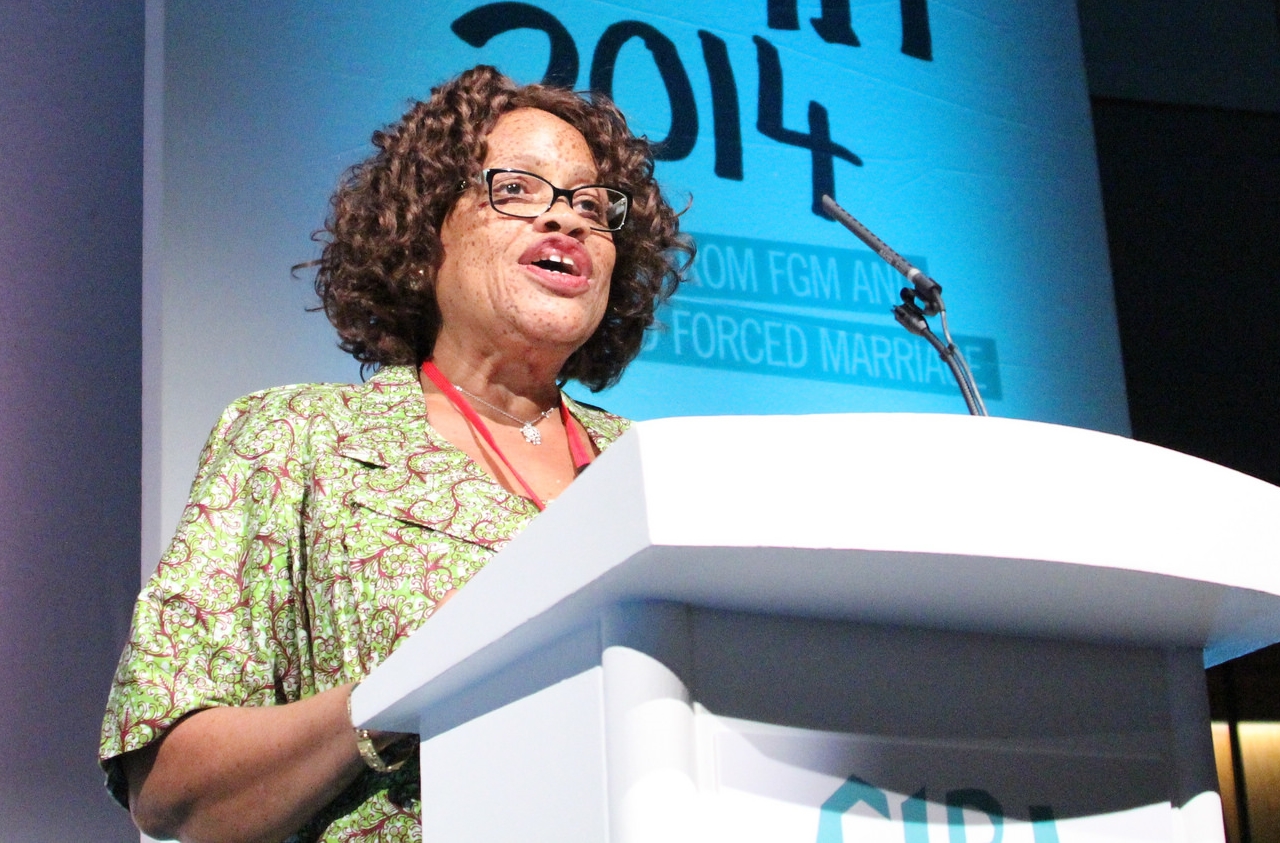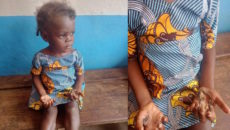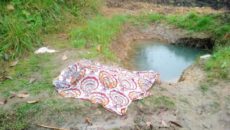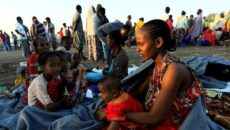KAKATA, Margibi – The Ministry of Gender recently coordinated a trip with several journalists and the Ministry of Justice to the safe house containing the 14 Liberian women who were allegedly trafficked to Lebanon and used as sex slaves.
Although the women were all repatriated to Liberia four months ago with the intervention of the International Organization for Migration and the Liberian government, the prospect for justice remains unclear.
The women are calling on the government to ensure speedy trial of the case against their alleged traffickers.
When they arrived in Liberia on March 19, the women were taken to a safe home in Margibi in order to protect them in addition to ensuring that evidence was properly secured for prosecution.
According to the women, since they were repatriated to Liberia, enough has not been done to fast track the case. They said the delay is leading them to believe that the Liberian government is in collusion with the alleged traffickers.
One of the women said, “We are not safe here in this home because of our accuser. Who knows if people may come here overnight to harm us?†She continued, “Let the government see reason to fast track this case to serve us justice.â€
Conditions in Lebanon
Grace David was one of the women repatriated to Liberia. She explained that she is suffering from stomach complication due to her experience in Lebanon.
The Justice Ministry allowed journalists to publish the real names of the women because the women have already revealed themselves by going public with the story of their treatment.
David said her captor beat her and threw her down a four-story building one day. “I was raped [and] beaten by Bashar Lakies’s nephew and also thrown down from that building,†David said. “I bled for three months and three weeks in Lebanon while I was still working.â€
Bashar Lakies is the one of the alleged traffickers. He is reported to have received the women from the airport in Lebanon through a man identified as Abbas Debts and Tamba Dixon, a Liberian.
David said Dixon convinced her to travel to Lebanon for better opportunities, including a good education and a lucrative job.
“I consented to Tamba and later Abbas Debts also confirmed the information to me by processing all my documents including my friends’ but when we got in Lebanon, the case changed,†David added.
She said while in Lebanon, when she refused to be a house help, her captor’s wife told her she had no option but to do what she was told. “I cried when she told me I had no option but to have sex with her husband and clean the house.â€
The ill-treatment and mishandling case for Muffittee Panma, 26, is even more complicated. She said her two years and three months in Lebanon was the most abusive and difficult times of her life. Panma said Debts promised her work in the best supermarkets and a US$250 monthly salary in addition to an education. She said if she knew things would have been otherwise, she would not have gone.
Panma says she now has an infection from the numerous rapes and bad treatment from her captors. “Right now I am suffering from chronic infection,†she said.
Life at the Safe House
For four months, the fourteen women have been in a safe home in Kakata, Margibi. The Ministry of Gender Children and Social Protection runs the safe home for victims of sexual assaults and other gender-based violence. The ministry, according to the women, promised to supply their needs and keep them safe until the case starts in June 2015.
Rema Nyepan, 26, said the ministry provided an initial US$150 monthly stipend along with food. But that has not been consistent. “Since May, we haven’t received any supplies from the ministry, not to [mention] the stipend aspect,†Nyepan said. “We are made to find food for ourselves.â€
For Gloria Jackson, the issue of stipend is not as important as a reunion with their families and a speedy trial of the case to ensure that justice is served. “I believe the government loves its citizens. So why are they keeping us here without us seeing our families and also prolonging the case?†Jackson said.
Jackson said she and the rest of the women usually leave the compound in search of food and other essentials since the government has not provided it. “I just came from receiving Mobile Money that my uncle sent me on my phone, this place have been dry for the past months,†Jackson said. “[It’s] everyone for themselves, here. I am surprised today to see the gender minster here.â€
Ministry of Gender Children and Social Protection
The Ministry of Gender, which is responsible for assisting victims of sexual and gender base violence, said it is doing everything to keep the women safe and healthy. Gender Minister Julia Duncan-Cassell asked for the women to be patient as the Ministry of Justice was still pursuing the case.
Duncan-Cassell said the purpose of her visit was to discourage the women from exposing the safe home and thereby endangering themselves. “I heard they were on TV and radio stations yesterday crying that the government had neglected them, which is wrong,†she said. “When you guys expose this place, then it’s no longer a safe home.â€
Duncan-Cassell said the ministry is now searching for an alternative location since the first safe home has been exposed. She said claims that the ministry stopped supporting the women were untrue but she promised to do more for their upkeep. During the minister’s visit, the fourteen women were seen signing for their stipends. A pickup full of food and other items was also unloaded for them.
Duncan-Cassell said Liberia is a country of law and order and she trusts that the Justice Ministry will properly resolve the case.
Criminal Case Against the Suspect
Liberia’s Solicitor General Bettie Larmin confirmed the case and pledged the government’s full support in seeing that justice is served. According to Larmin, an indictment for Abbas Debts was served at the Criminal Court C at the Temple of Justice in Monrovia.
When asked about the status of the case, the solicitor said, “The culprit is in jail as we speak and a motion was filed and accepted for the case to be transferred to Kakata, Margibi County since it is where the [women] are.â€
Larmin said the case will be heard during the August term of the Kakata Magisterial Court.
There is a perception in Liberia and specifically among the women that the government lacks the will to prosecute cases against foreigners and wealthy Liberians especially when the victims are poor.
When asked about the women’s claims that government officials may be colluding with the alleged perpetrators, Larmin said, “I don’t know where that statement is coming from, but the government will not compromise its citizens’ rights and welfare and we will fast track this case.â€
Larmin pleaded with the women to be patient and allow the law to take its course.
Some two to three years ago, about 50 Liberian women were taken from Liberia to Lebanon in search of better economic opportunities.
Fourteen of them were repatriated back to Liberia after pressure from the public who were shocked by news of their abuse. The women who returned have expressed their concern for the women still stranded in Lebanon.
The title of this article has been modified to properly reflect its content. Featured image of Gender Minister Julia Duncan-Cassell speaking at Girl Summit 2014. Photo:Â Russell Watkins/Department for International Development



